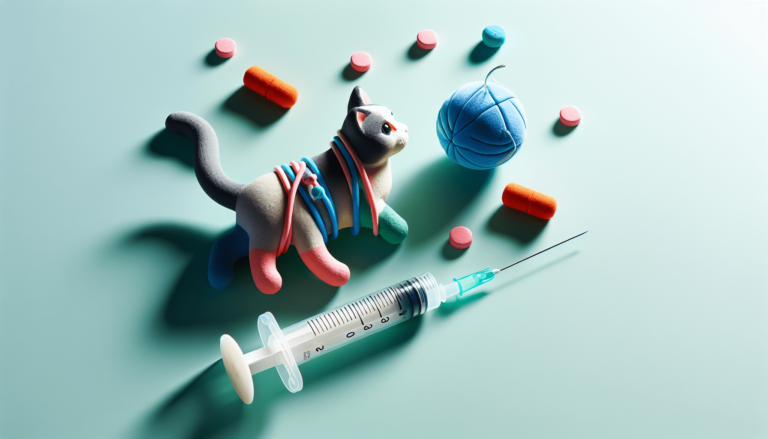How Many Chromosomes Do Cats Have
Welcome to this fascinating article where you will discover the answer to the question, “How many chromosomes do cats have?” Cats, like most mammals, have a specific number of chromosomes that determine their genetic makeup and play a crucial role in various aspects of their biology. By exploring the unique chromosome count of cats, you will gain a deeper understanding of these beloved and mysterious creatures. So, let’s dive in and unlock the genetic secrets of our feline friends! How Many Chromosomes Do Cats Have
Have you ever wondered about the genetic makeup of your feline friend? How many chromosomes do cats have, and what does this mean for their health and behaviors? Let’s dive into the fascinating world of feline genetics and uncover the mysteries behind the number of chromosomes in cats.
What Are Chromosomes?
Before we delve into the specifics of feline chromosomes, let’s first understand what chromosomes are. Chromosomes are thread-like structures made of DNA and proteins that carry the genetic information of an organism. They are found in the nucleus of every cell and play a crucial role in determining an organism’s traits, such as eye color, coat pattern, and susceptibility to certain diseases.
Explaining the Genetic Blueprint
Chromosomes contain genes, which are the building blocks of heredity. Genes are segments of DNA that code for specific proteins and determine various traits in an organism. The combination of genes on chromosomes influences an organism’s physical characteristics and behaviors.
Now that we have a basic understanding of chromosomes and genes, let’s explore the specific number of chromosomes that cats have.
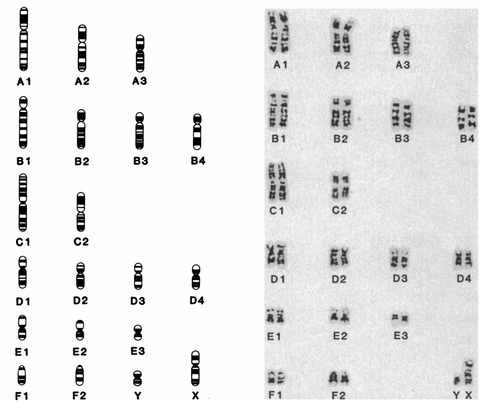
How Many Chromosomes Do Cats Have?
Cats, like most mammals, have a specific number of chromosomes that determine their genetic makeup. The domestic cat, also known as Felis catus, has a total of 38 chromosomes. These chromosomes come in pairs, with one chromosome from each pair inherited from the cat’s mother and the other from its father.
Pairing Up: Chromosomes in Cats
Cats have 19 pairs of chromosomes, totaling 38 chromosomes in all. Each pair consists of one chromosome from the mother and one from the father. These pairs contain the genetic information that determines a cat’s traits and characteristics.
Knowing the number of chromosomes in cats is essential for understanding how genes are inherited and passed down from one generation to the next. The next time you look at your cat, remember that its unique traits are determined by the arrangement of its 38 chromosomes.
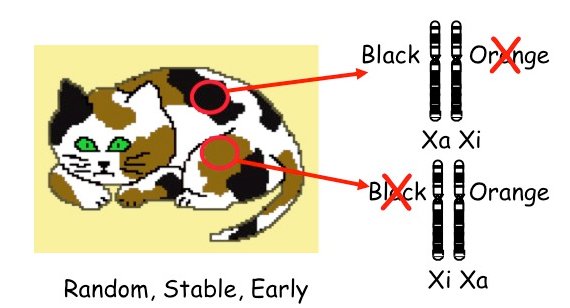
Inherited Traits and Genetic Disorders
The genetic information contained within a cat’s chromosomes determines various traits, such as coat color, eye color, and predisposition to certain diseases. Inherited traits in cats are passed down from their parents through the combination of genes on their chromosomes.
Coat Color Genetics
One of the most fascinating aspects of feline genetics is coat color inheritance. Cats can have a wide range of coat colors and patterns, such as tabby, calico, and solid colors. The genes responsible for coat color are located on specific chromosomes and can be passed down from parents to offspring.
Eye Color Variations
In addition to coat color, eye color in cats is also determined by their genetic makeup. The genes that control eye color are located on specific chromosomes and influence whether a cat has blue, green, yellow, or orange eyes. Different combinations of genes can result in a variety of eye colors in cats.
Genetic Disorders in Cats
While chromosomes play a crucial role in determining a cat’s traits, they can also be responsible for genetic disorders. Genetic disorders are inherited conditions that can affect a cat’s health and overall well-being. These disorders are caused by mutations or abnormalities in certain genes on the cat’s chromosomes.
Some common genetic disorders in cats include polycystic kidney disease (PKD), hypertrophic cardiomyopathy (HCM), and progressive retinal atrophy (PRA). These disorders can impact various systems in the cat’s body and may require medical intervention to manage symptoms and improve quality of life.
Understanding the genetic basis of inherited traits and genetic disorders can help cat owners make informed decisions about breeding, healthcare, and management of their feline companions.
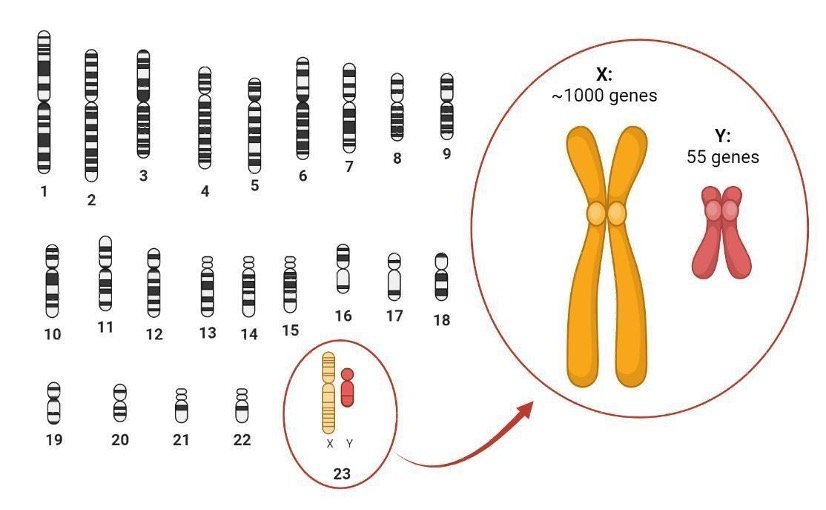
The Role of Chromosomes in Reproduction
When it comes to reproduction, chromosomes play a crucial role in the transmission of genetic information from parent cats to their offspring. The process of fertilization involves the fusion of egg and sperm cells, each containing half of the total number of chromosomes.
Feline Reproduction Process
During fertilization, the male cat’s sperm, containing 19 chromosomes, fuses with the female cat’s egg, also containing 19 chromosomes. This results in a zygote with a total of 38 chromosomes, which will eventually develop into a new kitten. The zygote contains a unique combination of genes from both parents, inherited through their chromosomes.
Inheritance of Genetic Traits
Through the transmission of chromosomes, genetic traits are passed down from parent cats to their offspring. Each parent contributes half of the genetic information necessary for the development of the kitten, including coat color, eye color, and other physical characteristics.
By understanding the role of chromosomes in reproduction, cat owners can appreciate the complexity of genetic inheritance and the diversity of traits exhibited by different cat breeds and individuals.
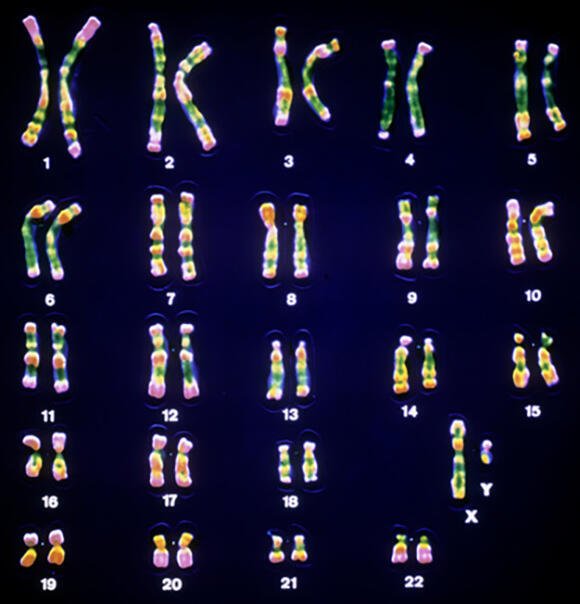
Impact of Chromosomes on Cat Breeds
The number of chromosomes in cats not only influences their genetic makeup but also plays a role in the development of different cat breeds. Cat breeds are the result of selective breeding practices that enhance specific traits and behaviors through the manipulation of genes on chromosomes.
Breeding for Specific Traits
Cat breeders selectively breed cats with desirable traits to produce offspring with predictable characteristics. Through careful selection and mating of parent cats, breeders can influence the expression of genes on chromosomes and promote specific traits, such as coat color, temperament, and body type.
Genetic Diversity and Health
While selective breeding can create distinct cat breeds with unique characteristics, it is essential to consider the impact on genetic diversity and health. Inbreeding, which involves breeding closely related cats, can lead to an increased risk of genetic disorders due to the inheritance of harmful mutations on chromosomes.
Responsible Breeding Practices
To maintain genetic diversity and promote optimal health in cat populations, it is essential for breeders to follow responsible breeding practices. This includes genetic testing for hereditary conditions, avoiding excessive inbreeding, and prioritizing the health and well-being of the cats and kittens.
By understanding the genetic basis of cat breeds and the role of chromosomes in shaping their traits, cat owners and breeders can make informed decisions that prioritize the health and welfare of these beloved animals.
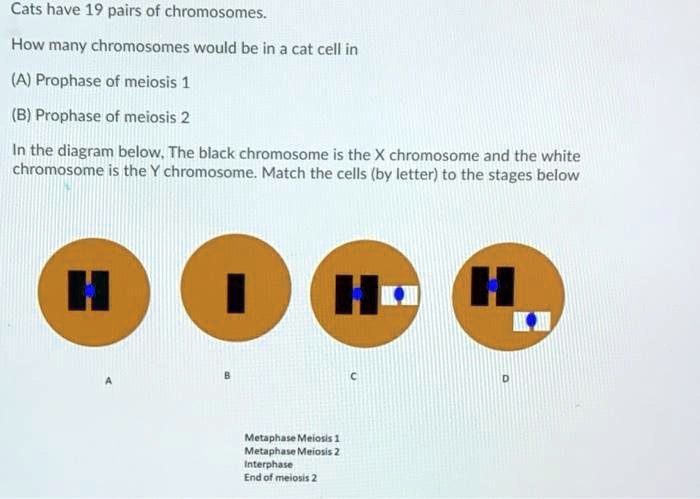
Conclusion
In conclusion, cats have 38 chromosomes that contain the genetic information responsible for their traits, behaviors, and health. Understanding the role of chromosomes in feline genetics can provide valuable insights into the inheritance of traits, development of genetic disorders, and impact of selective breeding on cat breeds.
By exploring the fascinating world of feline chromosomes, we can appreciate the complexity of genetic inheritance and the diversity of traits exhibited by our feline companions. Next time you look at your cat, remember that its unique traits are encoded in its 38 chromosomes, representing a fascinating genetic blueprint that makes each cat truly one-of-a-kind.




